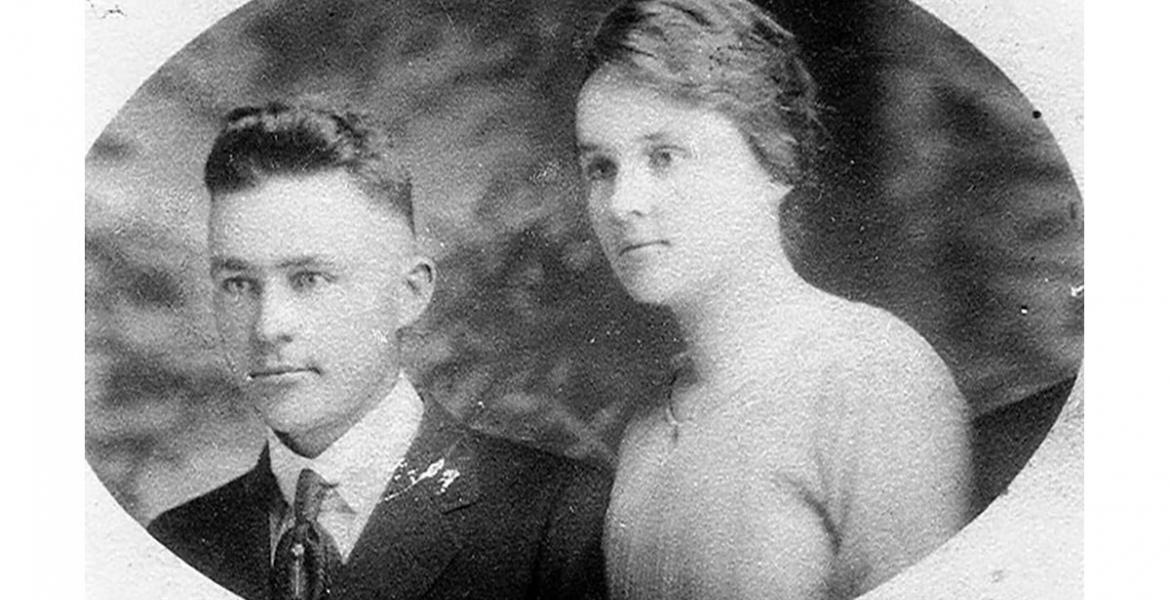“Never attempt to win by force what can be won by deception.” - Niccolo Machiavelli, The Prince
The power of suggestion is recognized by the field of psychological science as one of the most employed forms of behavioral manipulation known today. It is the craft of every lucrative salesman, magician, politician and clergyman, whether it's guaging an audience’s passions and needs or exploiting their fears and prejudices.
Just about everyone is susceptible to one form or another of hypnotic suggestibility and psychological manipulation, the success of which lies mostly in "response expectancies". These are the probable and anticipated reactions of individuals or groups to any given system of stimuli and experiences -- outcomes the practitioners of these methods have thought out and considered well before they've utilized them.
How thoughts and ideas are communicated are often as important as which thoughts and ideas are communicated. The methodologies within Neurolingustics are great examples of this theory: subliminal, interspersal or embedded key elements in publications and advertisements, the "voice roll" or speech pattern and pace of an orator, as well as a speaker's tone of voice, body language and gesticulations.
If casual conversation is a roll of the dice, the manipulator's words are chess strategy.
On any given day, on a multitude of fronts, metaphorical wars are being fought to win over the minds of the general public. Anything from a noble and charitable cause to a selfish, destructive whim; the foundation of any great movement begins with the delivery of charismatic suggestions, with the impressionable and/or naive becoming the inevitable means to a beneficial end of a select few.
One such variation of this type of hypnotic psychology is magnificently portrayed in the 1931 movie classic “Svengali,” a film adaptation of George du Maurier's 1894 novel “Trilby”.
“Svengali” is one of the "pre-code" greats. Free of the stifling, religious-based Motion Picture Production Code; it offered much of the true-to-life sentiment and harsh depictions of reality which were often blurred and sanitized in film within the years to follow.
The story, set in 19th century "Bohemian" Paris, is a love story between a struggling, middle aged Polish composer named Svengali (John Barrymore) and his young, credulous protege Trilby (Marian Marsh), with the plot centered around their codependent relationship and the turmoil unique to a union built upon deceit and obsession.
In the opening scene, Svengali's cards are immediately laid out on the table. A female student, Madame Honori, whom he's clearly been involved with for some time, has just informed him that she's left her husband. This may have indeed been a favorable situation to Svengali, had the woman's pride not compelled her to refuse any monetary settlement before her departure. Displeased, disillusioned, Svengali escorts the woman to the door with nothing more than a gaze. "Take your eyes off of me Svengali...please, take your eyes off of me!", she pleads as she hastily scurries away.
The following day, Svengali's live-in lacky, "Gecko", informs him that Ms. Honori had been pulled from the Seine River, in what appears to be a case of suicide. Svengali then delivers one of the films many gems of dark humor, casually replying "Pity....she was very sweet....but a bad business woman."
With the loss of Svengali and Gecko's potential meal ticket, they decide to begin their day by visiting the home of three English artists, in hopes of acquiring a free breakfast and a possible handout.
Though shrewd and cunning, Svengali is actually quite vulnerable in many respects. The three friends decide to strip him, toss him into some bathwater and run away with his clothes. Ever the opportunist, Svengali finds one of the painter's Sunday suits with a purse full of money in one of the pockets. Upon deciding how to spend the loot, a vibrant young model, Trilby O'Farrell, appears at the doorstep, triggering a chain of life-altering events for herself and the diabolical maestro, who quite literally has his sights set on her.
In the following days, Trilby sparks up a relationship with the youngest of the three English painters, Billie. While overhearing Billie and Trilby planning their future together, Svengali resolves to take Trilby for himself, securing a subconscious dependency within her mind by hypnotizing her under the guise of innocently attempting to cure her recurring headaches.
Later that night, in one of what is undoubtedly the movie's most visually stunning scenes, we see the genius of director Archie Mayo compliment the geometric anomalies of Anton Grot's German Expressionist-inspired sets as Svengali stands alone in his room, telepathically summoning Trilby and feeding thoughts into her mind as she sleeps. She awakens in a daze, and with headache in tow, heads directly to Svengali's home, seeking relief and inadvertently feeding his obsession.
Trilby is now completely enamored with her new master, though heartbroken over a fallout with Billie after he becomes jealous over her work as a nude model for other artists. Svengali seizes this opportunity to secure an inferiority complex within Trilby. As she pours her heart out to him, regarding her guilt of disappointing Billie, he asks, "Do your eyes reflect the virtue he sees in you? Do think you should be on such a high pedestal...after all these artists you have known ?".
This particular dressing-down has brought Trilby's modesty into question and has stripped away any sense of morality she believes she possesses. She's confused and desperate, and the only one in the world who can ease her body and mind is oddly the primary cause of her torments. The "fear-then-relief" method: produce excessive levels of stress and anxiety, then alleviate. Evil personified.
Svengali subsequently grooms and mentors Trilby musically, and in direct contrast with his ability to shatter the minds of his victims, he miraculously brings out the very best in her. He transforms Trilby into his ideal--an obedient, talented singer and sex symbol, craving fame and riches, only second to his security and watchful gaze. In an attempt to isolate Trilby from Billie and other immediate distractions, the two hatch a plan to fake her suicide and run away together.
Maestro and Madame Svengali eventually become a sensation throughout Europe in the following years, gaining the popularity and wealth Svengali always insisted he deserved. However, Billie has now realized that this glamorous songstress he's been hearing about is his beloved Trilby, whom he has now vowed to reclaim.
As if Billie's stalking was not enough, Svengali is now suffering from a vague illness which causes him excruciating pains in his torso. During these painful spells, Trilby seems to momentarily come out of her trance, at one point even running up to Billie....only to glance over at Svengali, and in true Stockholm syndrome, return to his side.
For all intents and purposes, Svengali has molded an image of perfection and beauty out of common clay, though common is what Trilby wishes to remain, to his disappointment.
In a poignant moment of the film, Svengali poetically snubs Billie's self worth as he lectures Trilby about what she should desire. He compares Billie's paintings, which hang on the gallery walls in London, to dead soldiers lined up, as a procession of mourners pass by to observe them. Then, in all of his arrogant glory, informs Trilby that someday princesses and countesses will hurl their jewels at him as he performs on stage and invites them into their palaces.
"But I don't like palaces." Trilby says bluntly.
"Nor anything else that other women like!" Svengali replies in disgust.
At this point in the film, Svengali seemingly wants something more out his his "manufactured love,” as he refers to Trilby. He wants her to desire as he does, and most of all, he wants her to desire him.
In a fit of haste, he instinctively falls back on hypnosis, halfheartedly putting Trilby under a trance, if only to temporarily satiate and stroke his ego to the sounds of her parroted lauding. In a moment of clarity, he comes to terms with the futility in his deception. The praise and amorous sentiments are indeed spoken from the lips of his devoted muse, but in reality it is Svengali speaking to himself.
Chimerical love is many things, by many other names, but assuredly is not love at all.
Svengali looks at Madame Svengali, in her opulent nightgown, lying in a lavish bed, yet in reality she is only Trilby, a simple young girl with simple wants and needs—and no amount of hypnotic manipulation or delusions of grandeur could ever change this.
For all the allure and eloquence this self-styled puppet master flaunts so nonchalantly, it is now he who is deceived, not by the world, not by Trilby, rather by himself.
At this point, Svengali must lie in the bed he's made, and although Madame Svengali is never more than an arm's length from his side, he and his beloved Trilby are worlds apart.
This film is a must-see, whether you're a fan of classic Gothic Horror, or simply enjoy a good love story. Though Barrymore is often over the top in his "mad maestro" delivery, his performance more than compliments the extravagant stylized costumes and makeup and the overall surreal environment of the picture. Marian Marsh's youth and innocence illuminate every scene and is the perfect contrast to Barrymore's malevolence, cruelty and fiendish presence.
Svengali has fallen into public domain and may be seen in it's entirety on a number of websites, however the best-to-date DVD release may be purchased on Amazon.com, among other places where classic movies are sold.
Subscribe to the LIVE! Daily
Required






Comments
Listed By: Puddles the Clown
EYE LOFF Z'FEENKALI
- Log in or register to post comments
PermalinkPost a comment to this article here: